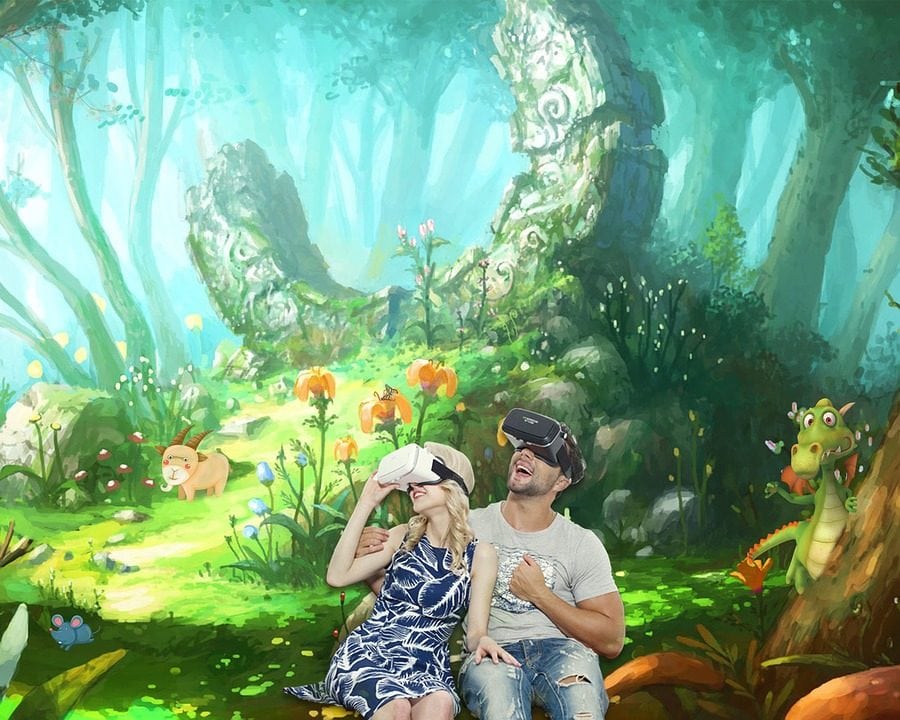 Human beings change their thought processing, feelings of emotions, their concept of morals, ethics, and the purpose of life regularly as society grows and changes. Because of this, the concept of virtual reality is one that sinks in well with people that have grown tired of, or believe there’s more to life than just what we see or perceive in our everyday lives. People like the popular space travel and electric-car entrepreneur Elon Musk, believe that it’s even likely we ourselves are but only a modernized simulation, far advanced beyond our own understanding.
Human beings change their thought processing, feelings of emotions, their concept of morals, ethics, and the purpose of life regularly as society grows and changes. Because of this, the concept of virtual reality is one that sinks in well with people that have grown tired of, or believe there’s more to life than just what we see or perceive in our everyday lives. People like the popular space travel and electric-car entrepreneur Elon Musk, believe that it’s even likely we ourselves are but only a modernized simulation, far advanced beyond our own understanding.
The concept of virtual reality is not new, and one which has been around for ages. Many, see the opportunity and purpose of virtual reality to both enhance, as well as escape what we perceive to be real, natural human reality. The idea that we can improve entertainment, or customize the ways in which we experience life, or modify what life consists of is beyond imagination for some, but not most. And while used in many modern technologies to prepare professionals for things like flying a plane, or fighting in a war, the dynamic of virtual reality only continues to expand. In fact, the military recently has been implementing virtual reality simulations to not only prepare for war but also fund projects that are designed to treat soldiers with post-traumatic stress disorder (PTSD) post-war via virtual reality technology.
For one to claim or believe that life in itself is a virtual reality, such as the Oxford philosopher Nick Bostrom, means that we must accept we are not in control – which has a love/hate relationship for most people. On one hand, we want to take accountability for, justify, and believe in society or human nature. Yet, on the other hand, we claim or presume that our own technology is not as advanced as it should be, can be, will be, or even once was.
These are all very deep philosophies that require a certain type of thinker, and while these types of theories may seem farfetched, they are nonetheless relevant to contributing to the development of more commonly modernized virtual reality – as an accepted form of life.
If we are indeed, already in a present state of virtual reality, one might ask why such hardships, evil, and catastrophes have been allowed into this “game” of life. And yet, from a scientifically sociological perspective, each of these variables very well makes sense. That is, as without good, how can there be evil, and without evil, how can there be good?
Popular movies like “Inception” popularized the idea of living in a “dream-like state”, or dreaming of a dream, within a dream. For many, this opened up the school of thought which believes there is a possibility that we as human beings do not have the intellectual capacity nor the resources to determine reality from a dream-like state. This also implies, that for some, we have been stuck in a dream-like state for as much as months, years, or even what we perceive to be an entire lifetime.
People love to think outside the box, and in our society, imagination and creativity are encouraged. So hopefully, in the future, the virtual realm will become more advanced – albeit scientists and professionals alike in the field have their shares of concerns. That is, given the current state of the use of technology such as social media that individuals are already beyond deprived of social interactions, and worse, the fears of AI or artificial intelligence taking over or working against mankind remains a concern. For some, it’s perceived as a robotic threat, so, given this technology and theorem, only time will tell (no pun intended).
Image Credit: danmo
